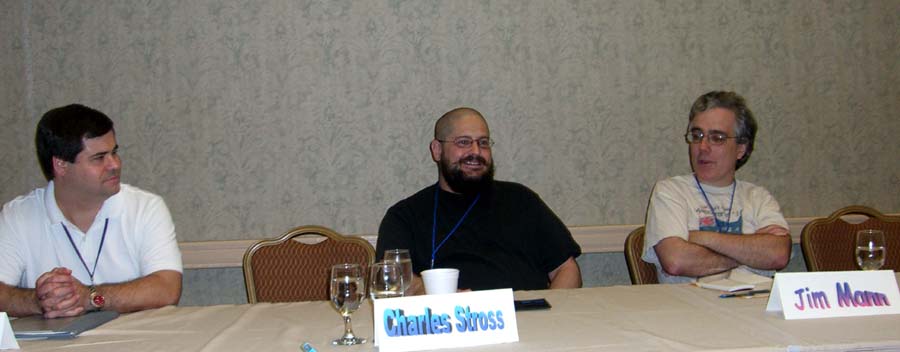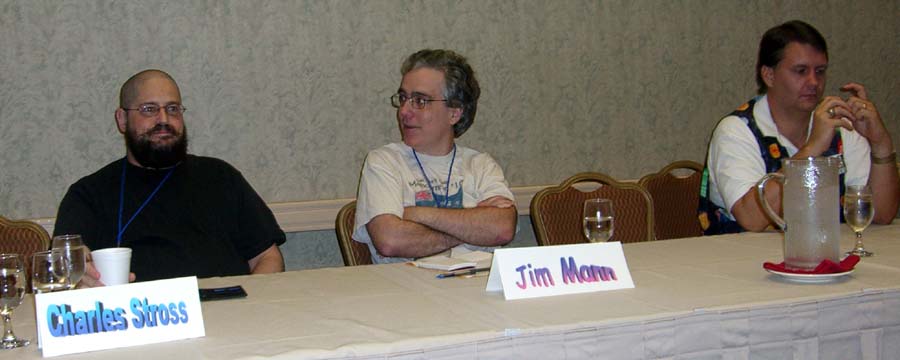ArmadilloCon 2005: Current Trends in British science fiction
What this panel was supposed to be about, according to the ArmadilloCon program book: “Several British writers are currently producing some of the most exciting and best-written SF yet seen. We’ll sort out the best stuff, try to discern trends, and overall try to spread our joy and enthusiasm.”
Panelists: Jayme Lynn Blaschke, Jim Mann, Lawrence Person, Willie Siros, Charles Stross
Even though Charles Stross was on the panel, it was disappointing. The panel focused mostly on history of British science fiction, and the panelists examined the history in the dullest possible way, by enumerating various magazines and editors and how they influenced British SF. What new authors they discovered, etc. Not the most fascinating stuff for me. I’m not sure I care how British SF got to be what it is today. According to Charles Stross, it has something to do with the fact that the 20th century saw the sunset of British empire. Degeneration of the former empire into a country financially bankrupted by the World War II left British science fiction writers in a long-lasting depression. But Stross does not explain how the SF eventually got out of that depression and emerged so cool and interesting.

And trends? One panelist stated that “a lot of British writers don’t fit into trends, but they are doing excellent work”. The only trend mentioned on this panel was The New Weird, and only to say that an argument over who was writing The New Weird lead to such a huge flame war on a certain mailing list that it crashed the server. According to Jim Mann, when they got to the point of trying to include Aistair Reynolds into the New Weird, it became meaningless. This did not stop some panelists from continuing to make attempts to classify The New Weird. Charles Stross would include Liz Williams in that category, and Lawrence Person would include Mary Gentle as well.
Charles Stross informs us that Mary Gentle disputes that what she writes is not fantasy, it is science fiction set in a world where alchemy works. (In my humble opinion, “pearls” like that have a potential to redeem even the dullest panel.)
Another category of British SF that sells well is humor, observes Charles Stross. Examples: Terry Pratchett, Jasper Fforde. The list of bestselling SF authors in the UK is like this: J. K. Rowling, Terry Pratchett, then everyone else.
The only thing that made this panel worth going to was to hear Charles Stross’ reading recommendations. Here are British authors he recommends: John Meaney (hard SF with interesting physics and some AI concepts, lots of adventure); Richard Morgan; Liz Williams — according to Stross, she writes what used to be called “science fantasy” (why, is it not called that anymore? — E.); Justina Robson, Tricia Sullivan. Willie Siros and Lawrence Person also recommend Neal Asher and Susanna Clarke.
